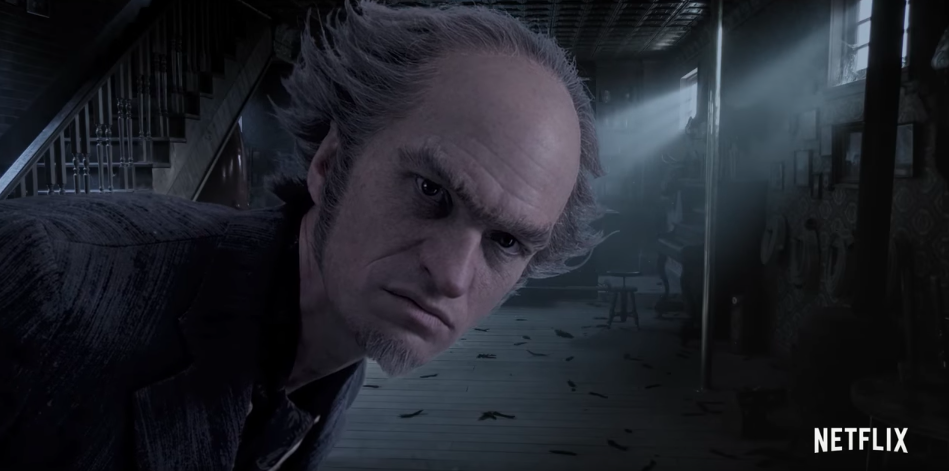Netflix’s A Series of Unfortunate Events returned for a second season that will simultaneously bum you out and make you laugh as much as the first one.
This season finds the Baudelaire orphans at a terrible prep school, a classy high-rise apartment building, a small village in the hinterlands, a decrepit hospital and an old carnival as they try to escape the menacing Count Olaf, portrayed by Neil Patrick Harris.
As with the first season, each story from the acclaimed novel series is contained in two episodes and narrated by Lemony Snicket (Patrick Warburton). Warburton’s performance is as stale and flat as ever, which, for once, is a compliment because it emphasizes the desolate, sad world that the orphans inhabit.
The cartoonish, gothic backgrounds, though often clearly green screens, feel like illustrations leaping off of the page. The show’s humor thrives here, especially when there are winks to the audience. It’s clear the world the Baudelaire’s traverse is perverse and unreal, which allows for both humor and tragedy to thrive.
Harris brings the same energy as he did in the first set of stories. He somehow finds a way to be extremely likable and funny while also performing unforgivable deeds to steal the Baudelaire’s fortune. Through more outlandish disguises, Harris delves even deeper into the character, and the audience gets a bigger picture on the horrible actor with each character he undertakes. Some are funnier than others, but they all add something new to the story.
Most importantly, guest stars carry the show. The season has an even heavier ensemble cast, with Lucy Punch joining as Harris’ love interest. Tony Hale, Roger Bart, David Alan Grier, Sara Rue and Nathan Fillion round out the cast beautifully. They all bring humor — and occasionally hope — to the orphans’ world, despite the constant theme of adults failing to understand and help like a child can.
The show’s pacing is brilliant, teasing out the mystery of the orphans’ parents’ death, the secret organization V.F.D. and what exactly happened with the sugar bowl. We even get an early glimpse at the secret group, with Snicket, Olaf and the orphans’ previous caretakers.
The show’s biggest issue is its repetitive nature. More often than not, elements from the previous books carry over, and the basic story of each two episodes is the same. There is, however, an effort to break the pattern when the Baudelaire children go on the run from Olaf and the law, despite the fact that they’re the innocent party.
A Series of Unfortunate Events is horribly stupendous, a phrase which here means “incredibly enjoyable and valuable family entertainment, despite the fact that even the narrator and theme song assure the audience the subject matter is hard to watch and unpleasant. And yet all the same, not only do some people choose to watch it, but they actually, understandably derive great pleasure from it.”



